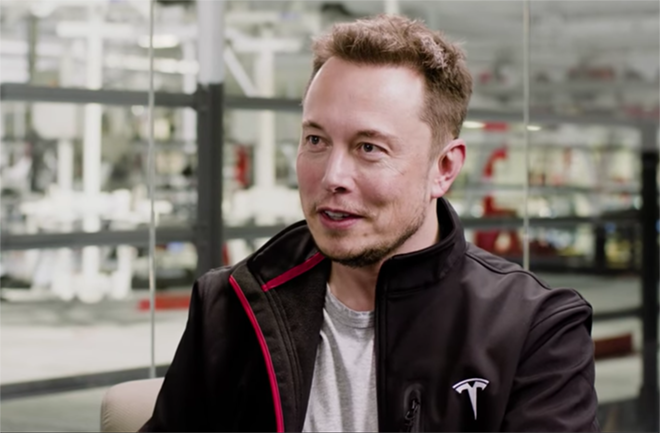Wheee! What fun it must be to set the financial markets and the media ablaze with a single tweet, and incinerate $1.3 billion of your enemies’ wealth with a few keystrokes. Tesla has been through some roller coaster rides before, but this year has been unlike anything we’ve ever seen, and things just got even wilder.
“Am considering taking Tesla private at $420. Funding secured,” read Elon Musk’s Tweet Heard Round the World. TSLA shares were already trending up following the news that Saudi Arabia’s sovereign wealth fund was investing $2 billion in the California carmaker. Following Musk’s bombshell, they achieved liftoff. The company halted trading for part of the afternoon (a standard move when such destabilizing news is announced), but the shares hit escape velocity when trading was resumed, to close up 11% for the day, at $379.
Tesla soon explained the rationale for the plan in a blog post: “As a public company, we are subject to wild swings in our stock price that can be a major distraction for everyone working at Tesla, all of whom are shareholders. Being public also subjects us to the quarterly earnings cycle that puts enormous pressure on Tesla to make decisions that may be right for a given quarter, but not necessarily right for the long-term. Finally, as the most shorted stock in the history of the stock market, being public means that there are large numbers of people who have the incentive to attack the company.”
“I fundamentally believe that we are at our best when everyone is focused on executing, when we can remain focused on our long-term mission, and when there are not perverse incentives for people to try to harm what we’re all trying to achieve.”
The threat posed by short sellers and other ill-wishers has been discussed in detail by analyst Galileo Russell and others. But the remedy discussed by most observers has been for Tesla simply to achieve profitability, which would make the company less dependent on the capital markets for financing. Taking the company private would untether it from the stock market altogether, eliminating the need to worry about quarterly results, along with the need to publicly disclose much in the way of financial information at all. By the way, it would also vaporize the short sellers with one quick blast of an overpriced flame thrower.
Tesla boosters were ebullient – Electrek’s Fred Lambert called Elon’s bombshell “a giant finger to those betting against the company,” and “one of the most badass moves I have seen on the financial markets.” He shed a crocodile tear for the “army of internet trolls” who stand to lose their raison d’etre.
Financial analysts were far less amused. Companies just don’t tweet market-shaking news like this in the middle of the afternoon – they release it after market close, in dignified, detailed statements prepared with the help of pricey financial analysts. They certainly don’t halt trading after dropping the bomb – doing so is kind of like throwing piles of money to people at random. Traders who were watching Elon’s Twitter feed when he announced the news made a quick and easy score. Those who weren’t, didn’t.
“This is a big disclosure. This is the most significant thing that can happen to an investor in a company,” said the University of Delaware’s Charles Elson. “It’s a very strange way of doing it and unsettling to investors.”
Skeptics immediately raised the question of whether Musk had violated SEC rules by making such an announcement on Twitter, but at this point it appears that he is allowed to do so, and that he is not joking.
“I believe Tesla considers tweets as public disclosure,” said analyst Chaim Siegel from Elazar Advisors. “I think he’s serious. Plus this is short squeeze rocket fuel after a nice quarter.”
George Galliers of Evercore ISI agreed: “I can’t believe this is something to bluff or make fun of. Given his historic frustration with short sellers, analysts and certain parts of the press, it is perhaps also not surprising that he has given consideration to taking the company private.”
As you’ve probably surmised, many questions remain unanswered. Bloomberg notes that Musk, who owns around 20 percent of the company, would need to come up with $66 billion to complete the transaction. At $420 a share, Tesla would have an enterprise value of about $82 billion. If this deal goes down, it would be the largest leveraged buyout in history.
Gene Munster, of VC firm Loup Ventures, said Tesla would perform better as a private company because the scope of its ambitions doesn’t play well with investors’ short-term expectations. However, he also struck a note of caution, saying, “There is a 1 in 3 chance [Musk] can actually pull this off.”
Source: Tesla, Automotive News, Washington Post, New York Times, Electrek, Green Car Reports, Bloomberg



















































































